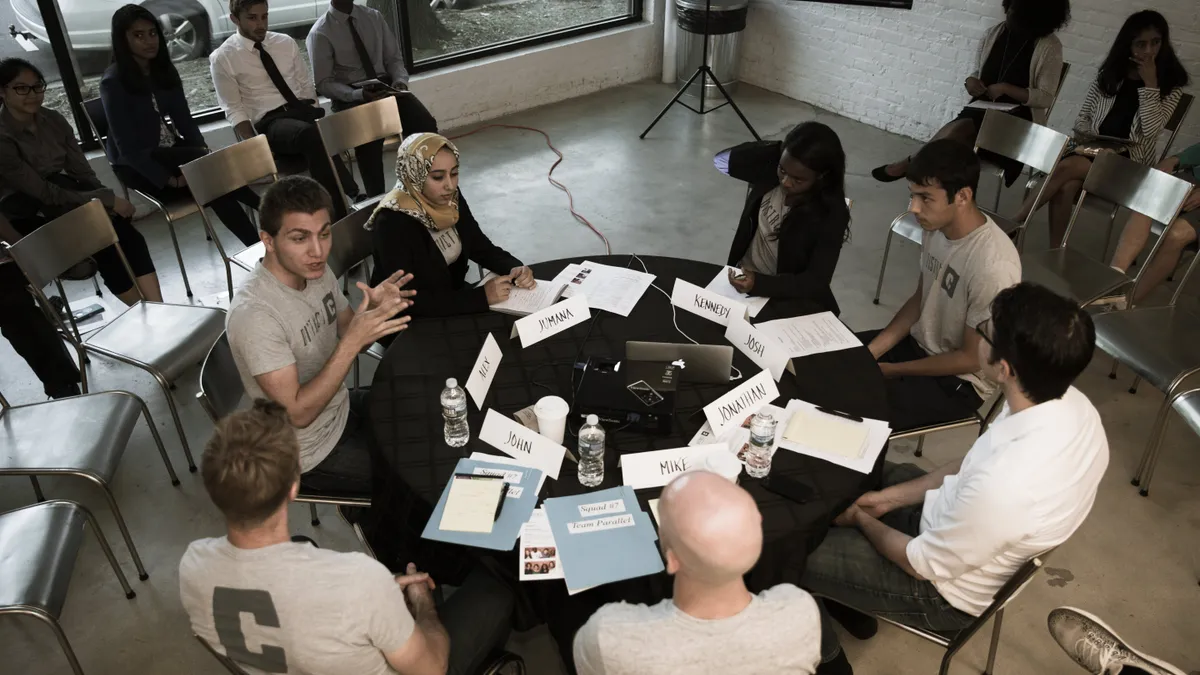When Andrew Kenny was on a plane to Cairo in 2014 to negotiate a joint venture between U.S. agriculture giant Archer Daniels Midland (ADM) and a family-owned Egyptian company, his focus, as an ADM controller, was on financing issues. But ultimately it was his skill at reading people across cultures that he had developed over a globe-hopping finance career that helped make the deal happen.
“By the end, I had really shifted my mindset,” said Kenny, today CFO of Scoular, an agriculture supply-chain management company. “It wasn’t just doing all the numbers; ultimately, it was [the experience] dealing with global cultures to break the stalemate.”
Kenny got his first taste of working across cultures as a Deloitte analyst when he transferred to the firm’s Bermuda office in 2008 to work on hedge fund transactions right after the financial crisis.
“The most transformative part of the entire experience was the Deloitte Bermuda office was staffed with people from all over the world,” Kenny said this week in a CFO Thought Leader podcast. “By spending so much time with these colleagues, I really learned first-hand about the power of a diverse team. Honestly, I never could have understood this sitting in the Midwest.”
He furthered his global experience when he moved to Hamburg, Germany, after taking a position at ADM in 2010 to help oversee reporting of company operations in 50 countries. He later transferred to Switzerland as his responsibilities expanded.
“It was my first time leading a global finance team of hundreds, spread out geographically,” he said. “It was sink or swim, so I learned to focus on relationships and dealing with global cultures.”
Negotiation break
That skill made a difference in Cairo. Over the course of 10 trips to the city, he developed a close relationship with the Egyptian company’s CFO, who was also a co-owner of the family-run business. When negotiations over the deal bogged down, he and the CFO were able to come to an agreement after stepping outside of the meeting room.
“We struggled to get to economic terms on the transaction,” he said. “We used our relationship to step out of a very heated deal room that we had been in five days straight. It had the stench of pizza you ate for dinner for the past four nights. We stepped out to talk one-on-one and use that relationship to break the stalemate. In the end, we got the deal done. That was really because of relationships.”
Expansion phase
At Scoular, which he joined as CFO in 2019, Kenny is using his global experience to help guide the employee-owned company through its next phase: international expansion. “It’s a logical fit with my skill set,” he said.
To prepare the company for that kind of growth, he retooled the organization’s finance and accounting operations around a Prophix corporate performance management (CPM) system, which integrates the data and planning applications into one place. He also stood up a financial planning and analysis (FP&A) operation.
“Prior to this, the organization had lightly dabbled in aspects of FP&A, so I brought in a global director of FP&A and an FP&A lead for each of the company’s divisions plus a corporate FP&A leader,” he said.
The analysts are embedded in the company’s three divisions — grain, feed and food — and report, along with the corporate analyst, to the global FP&A head, who reports to Kenny.
The system, which launched shortly before COVID-19 hit, proved its worth right away.
“We’ve completed two budget cycles virtually,” he said, “[without having to do that] slinging spreadsheets around.”
Kenny credits the employee-owned structure for the long-term view the company takes in its planning, which enabled it to move forward with its global expansion plans even during the pandemic.
“It’s refreshing as CFO not having to think quarter-to-quarter,” he said. “Now I can think in terms of years or decades.”
It also helps that the company is self-funding its growth, relying only on debt for additional capital.
“We don’t have any outside money in the equity structure,” he said. The only stakeholders outside the company's board he has to deal with are bank representatives. “I spend a lot of time explaining to them our operations and results.”




















